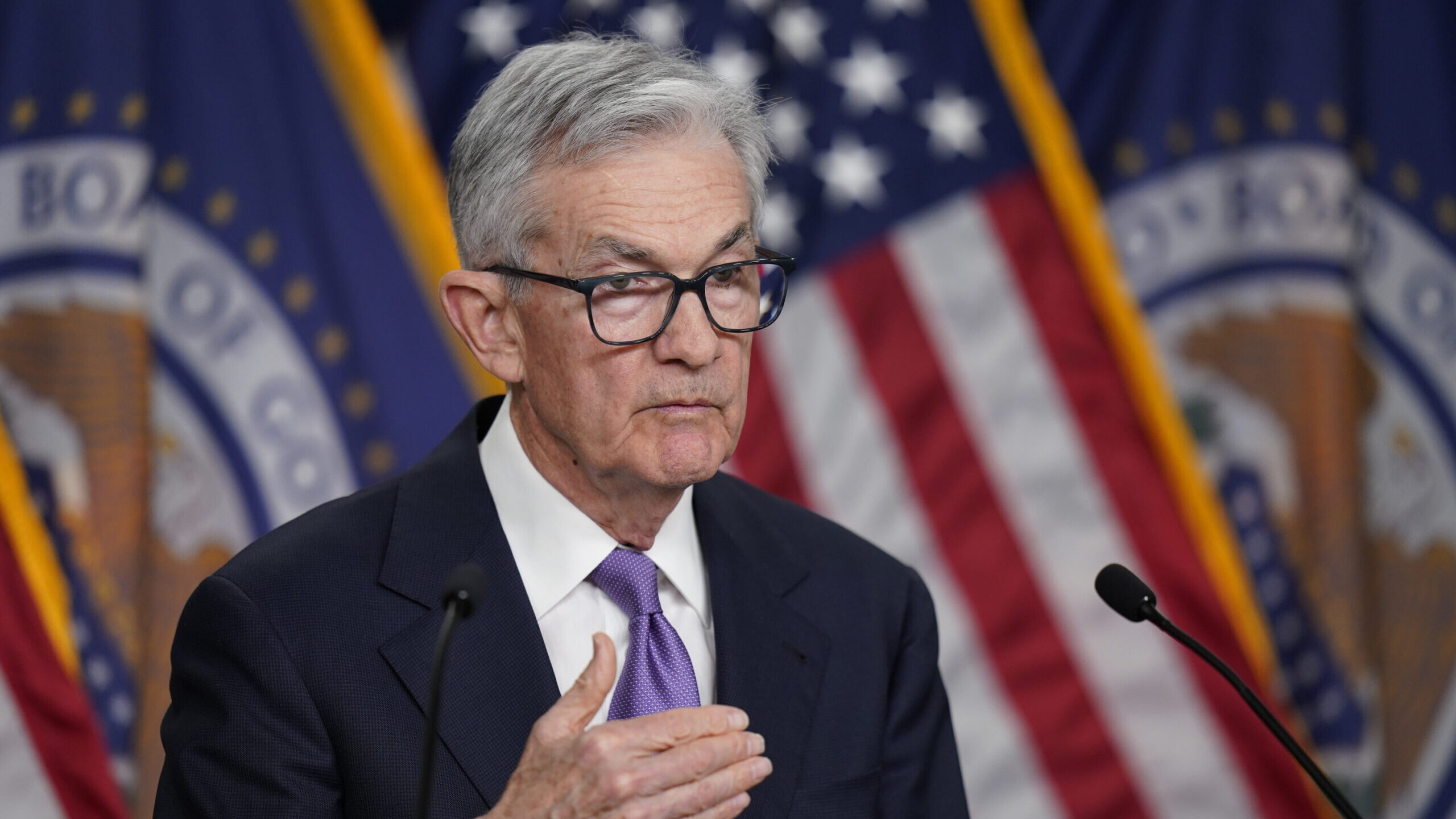Yes, employers can set a mandatory retirement age. What you need to know
Jan 22, 2024, 7:30 AM

Board members are more likely than CEOs to face mandatory retirement ages. But employers are generally prohibited from imposing them on rank-and-file employees. (Martin Barraud/OJO Images RF/Getty Images)
(Martin Barraud/OJO Images RF/Getty Images)
New York (CNN) — Former US Vice President Al Gore, 75, is stepping down from Apple’s board because of the company’s age-based restrictions for its directors, and it raises the question of ageism in Corporate America.
By no means is age 75 — or any age over 65 — an automatic disqualifier for US corporate leaders.
Consider: The top 10 oldest CEOs of companies on the Russell 3000 — led by Berkshire Hathaway’s Warren Buffett — ranged in age from 84 to 91 in 2022, according to The Conference Board and ESG data analytics firm ESGAUGE. As of this writing, they are all still on the job.
In fact, mandatory retirement ages are more of an exception than a rule in Corporate America, and they don’t exist for US lawmakers or surgeons or many other jobs. But they do exist in a lot of public-safety occupations.
Here’s a look at where they are most and least prevalent, and why.
Boards are most likely to have mandatory retirement age policies
Having a mandatory retirement policy for board members is up to the discretion of individual companies. But a majority do have them.
“In 2023, 69% of [S&P 500] boards reported having a mandatory retirement policy — down one point from 2022,” according to an August 2023 report from executive search firm Spencer Stuart.
Among those with such policies, the vast majority (97%) set the retirement age at 72 or higher, with 57% putting it at 75 or older, the report noted.
“Director retirement policies continue to be quite commonly found in corporate organizational documents, as the need for board refreshment is ongoing,” said Matteo Tonello, a managing director at The Conference Board, who advises members about governance issues.
That’s due largely to the need for boards to diversify in a number of ways, Tonnello said, citing gender and racial diversity and also diversification in terms of qualifications and skills, such as having experience with emerging technologies.
CEOs are less likely to face push to retire at a given age
It is harder to quantify how many companies impose a mandatory retirement age for CEOs and other senior leaders, Tonello said.
For one thing, some companies may have retirement age policies on paper but will disregard them when they want to keep someone on.
“Boards often override them due to the inconvenient circumstances the company may face when the policy is triggered,” he said.
Those circumstances can be a company going through a crisis (or conversely performing very well); a tight labor market for senior talent; or an economic downturn.
For example: Target CEO Brian Cornell was 63 in 2022, when he and the board agreed he would stay on another three years. The board said it would eliminate its policy of discussing a CEO’s retirement when he or she turns 65.
And in 2021, in the midst of Boeing’s 737 Max crisis, Boeing CEO Dave Calhoun turned 64. The company board waived its mandatory retirement age of 65 and announced it would extend it to age 70 for Calhoun.
But waiving a mandatory retirement age policy for one CEO doesn’t mean a board won’t resurrect it for someone else.
“These policies have often disappeared from corporate governance principles or other organizational documents. [That] does not mean though that they have been rescinded, since there is no disclosure obligation related to them. And many boards may choose to unofficially keep them in place, [and] use them only when convenient,” Tonello explained.
Then again, boards may not have to make the call too often since many CEOs leave well before traditional retirement age. Challenger, Gray & Christmas, which tracks CEO exits, reports that “the average age of an exiting CEO was 56 in 2023, down from over 63 in 2017.”
So, what about everyone else at a corporation?
Thanks to federal and state age discrimination laws, generally speaking it is illegal for companies to impose a mandatory retirement age for rank-and-file employees, said Thomas McKinney, a partner at the employment law firm of Castronovo & McKinney, LLC.
The Age Discrimination in Employment Act applies to all companies with 20 or more employees. But a state can decide to apply prohibitions to a wider swath of employers if it chooses. For example, McKinney noted, New Jersey prohibits all companies, regardless of how many employees they have, from imposing a mandatory retirement age on workers.
So why is it okay for companies to push their CEOs and board members out the door after a certain age?
There is an exception in the ADEA that lets companies set retirement ages for anyone 65 or older if they are a bonafide executive or high-level policymaker (which includes senior executives other than CEOs or board members) and who stands to receive non-forfeitable retirement benefits valued at a minimum of $44,000 a year.
Individual states may set a lower retirement benefit threshold.
What about specific professions?
The ADEA, however, does not apply to organizations of all kinds.
For example, McKinney notes, it does not cover partners and shareholders in closely held corporations. So doctors or lawyers working in a small practice may be asked to hand in their work ID when they turn 65 or older.
However, there is no official required retirement age for surgeons when it comes to physically operating on patients. But the American College of Surgeons put out a statement in 2016 — which the ACS still stands by today — that recommends surgeons, “starting at age 65-70,” voluntarily seek out physical, visual and cognitive testing among other measures.
Many other public safety occupations do have mandatory retirement ages. Commercial airline pilots, for instance, under federal law may no longer fly commercially after turning 65 (though there has been a legislative push in Congress to increase that age to 67).
Federal and state police officers are typically subject to mandatory retirement ages, too, McKinney said.
In New York State, for instance, state police officers with at least 20 years’ service must retire after turning 60. But US Capitol Police officers with that same tenure must retire at 57, although in 2020 they were temporarily exempted from that requirement.
Other federal jobs subject to mandatory retirement ages are “firefighters, nuclear materials couriers, air traffic controllers, and customs and border protection officers,” according to the U.S. Office of Personnel Management.
The whys behind mandatory retirement ages
There may be varied stated reasons for having a mandatory retirement age, such as opening up the pipeline for younger talent to have more opportunities. Or, in the case of boards, as Tonello noted, there is often a desire to diversify and fill roles with various types of expertise.
But the underlying reason for retirement age policies is often more of a knee-jerk assumption.
“What is behind these mandatory retirement policies and laws is an assumption that somebody older is not as qualified, competent or productive,” said Mary O’Neill, an attorney for the Equal Employment Opportunity Commission.
Or, in the case of public-safety jobs, “there’s an assumption that age is connected with safety and physical competence,” O’Neill said.
But all such assumptions are based more on “myths, fears and stereotypes” than fact, she said, noting that performing individual assessments of employees is a better way to determine competency of all kinds — physical, mental and psychological.
“There will be some 33-year-olds who don’t have the ability to do a job if you do an individual assessment,” she said.
And some 65-year-olds may not make the grade either. But some will.
For that reason, advocates for older workers, like the AARP, contend all mandatory retirement ages should be eliminated, even for demanding jobs involving public safety.
“Numerous scientific and medical studies find no need for this age-based discrimination,” the AARP notes in its latest policybook on employment issues.
“Public safety would be better served by periodically testing the fitness of public-safety employees, regardless of age, rather than relying on arbitrary age restrictions.”
The-CNN-Wire
™ & © 2024 Cable News Network, Inc., a Warner Bros. Discovery Company. All rights reserved.













